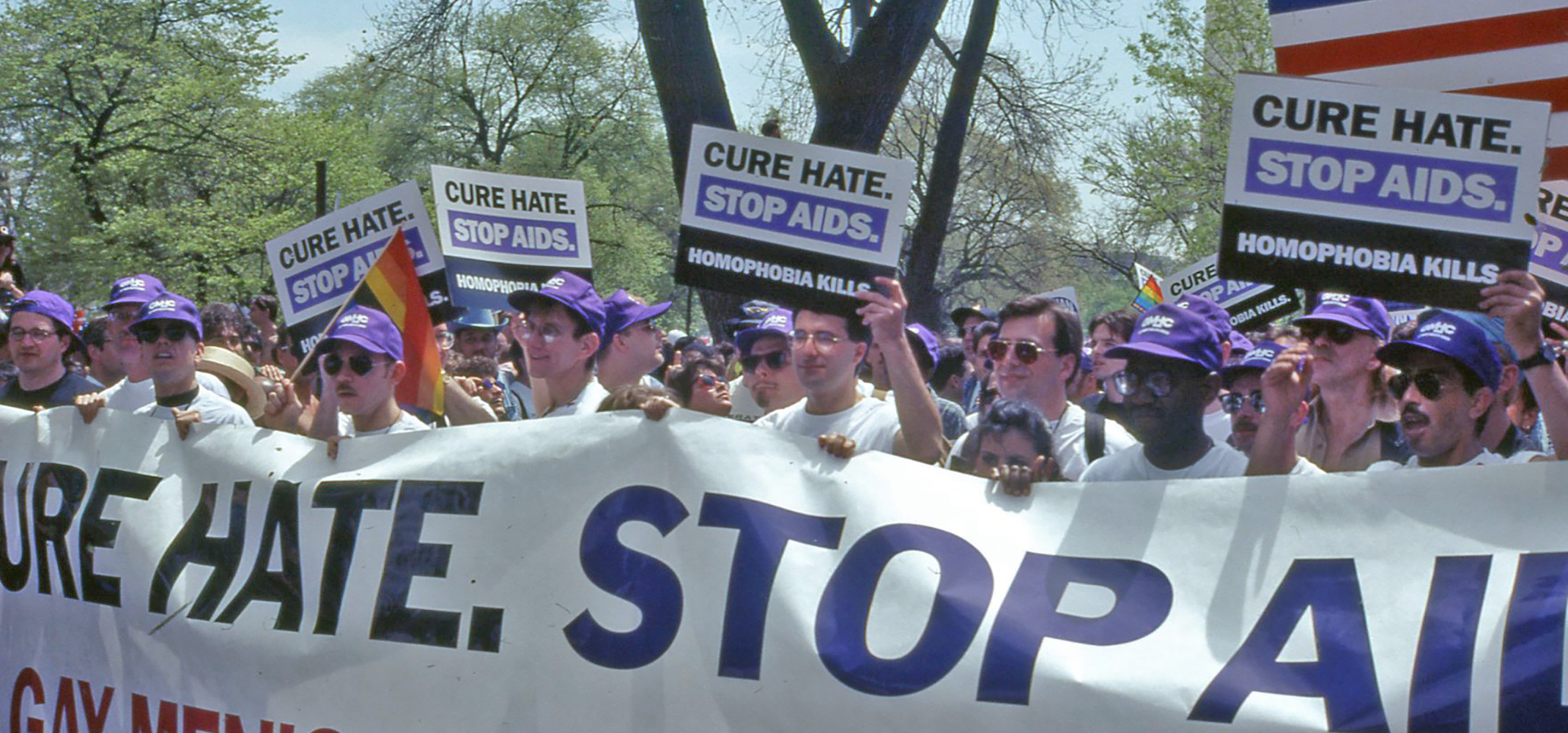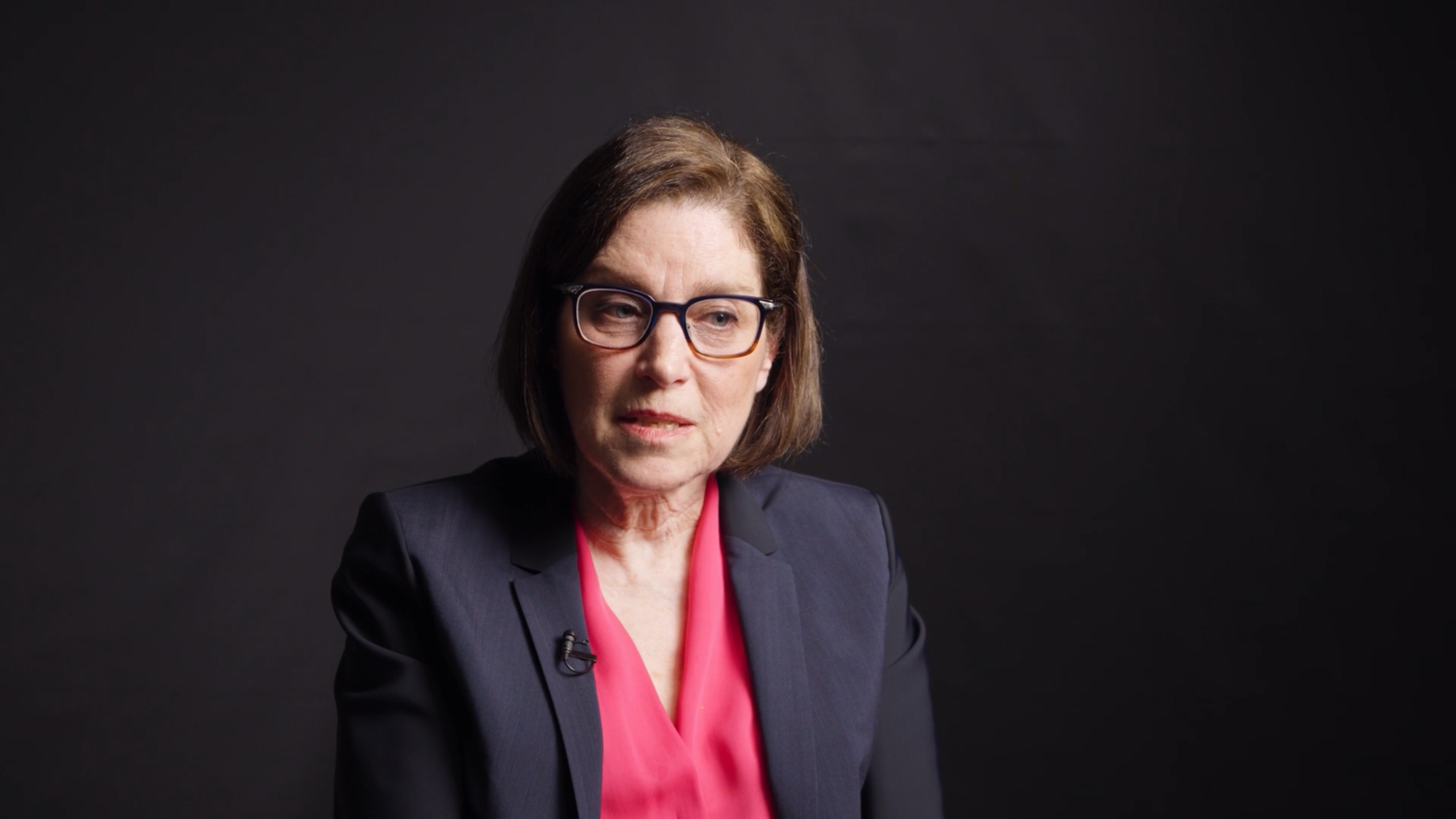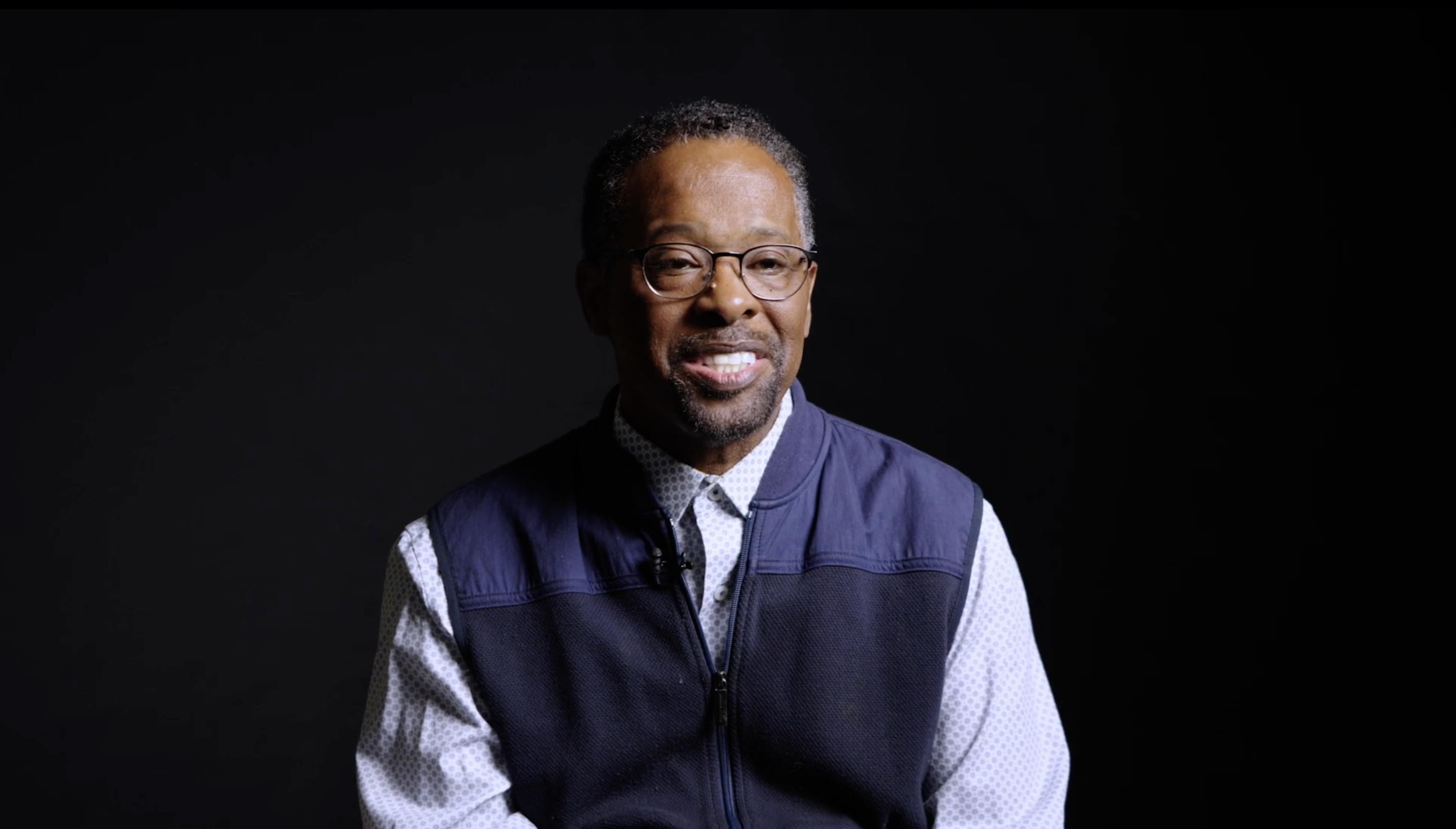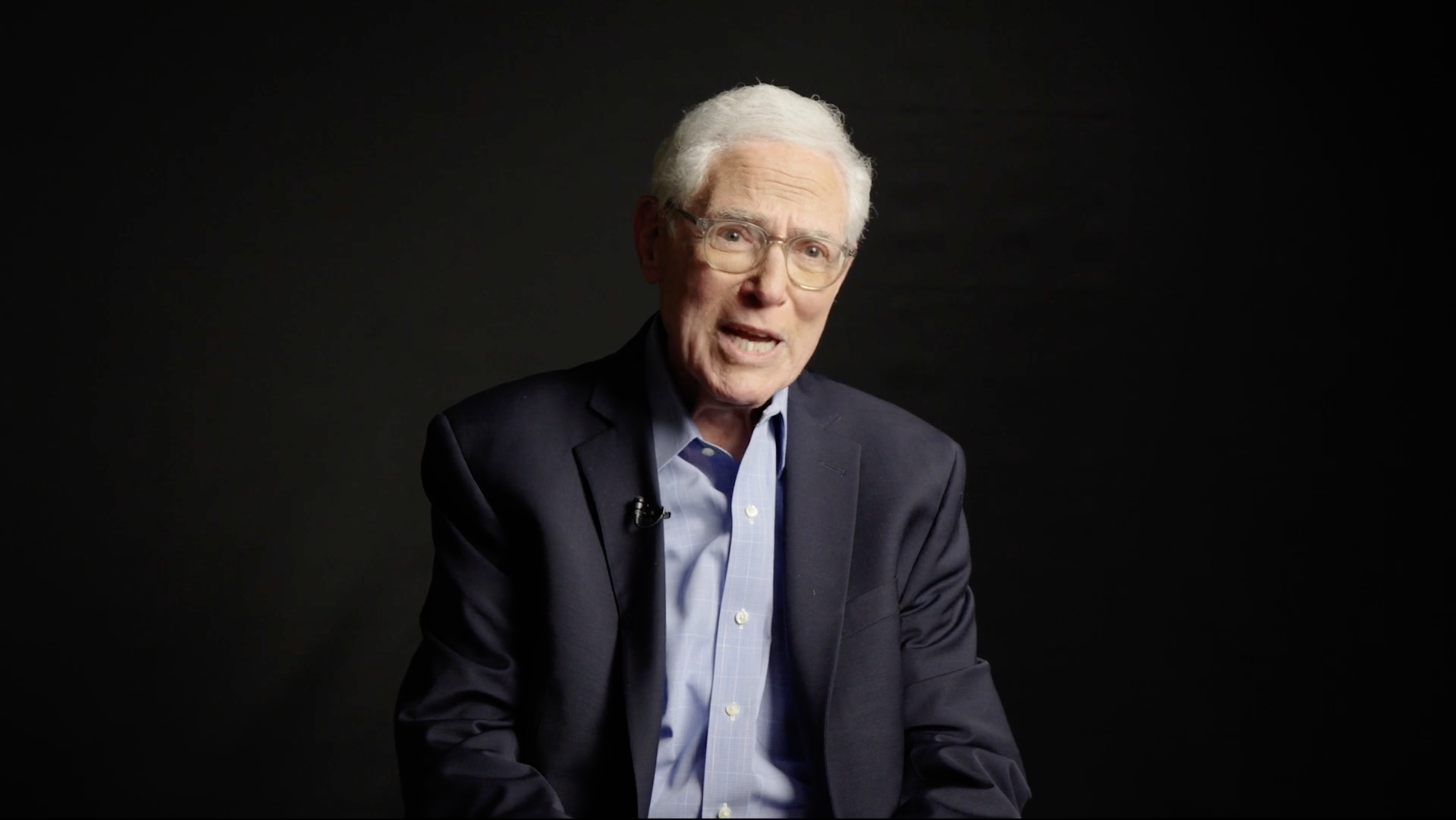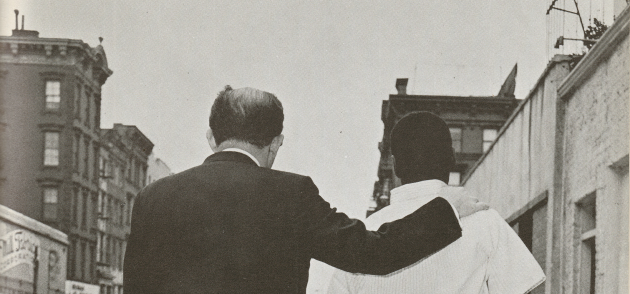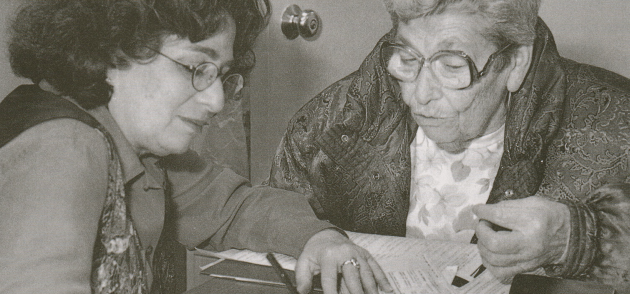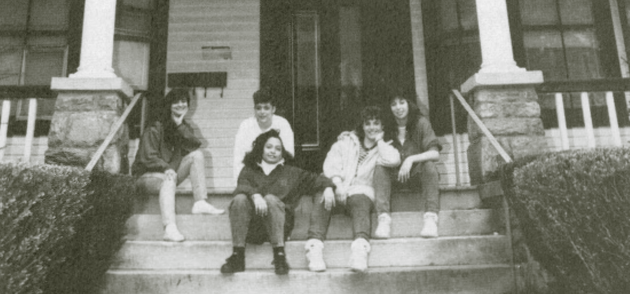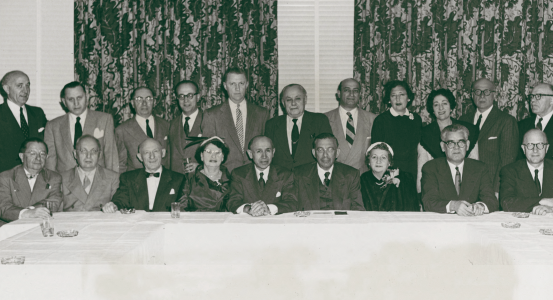HIV and its ensuing disease, AIDS, first came to public attention in the United States when cases emerged among gay men in several large cities, including New York. Due to the disease’s early association with gay men, people with AIDS (PWAs) initially faced severe discrimination and neglect. In the absence of critical support from government and the health care industry, PWAs took matters into their own hands by forming advocacy, social support, and medical treatment organizations run by and for PWAs.
One of these organizations, the Gay Men’s Health Crisis (GMHC) was founded in the early 1980s in Manhattan. GMHC started an AIDS hotline, distributed information on treatment and safer sex, and organized fundraisers to support PWAs facing both illness and discrimination. In his capacity as a Senior Consultant to the New York State Department of Health, Jewish Board Executive Director Jay Goldsmith served on GMHC’s Board of Directors. Through his advocacy, The Jewish Board served PWAs and their families by providing onsite social workers at the GMHC offices as well as accepting referrals to Jewish Board clinics. Beyond GMHC, The Jewish Board ran an AIDS Day Treatment Program that served a much wider spectrum of PWAs including intravenous drug users. About 25% of the clients were Jewish.
The Jewish Board was one of the first social service agencies in New York City to treat PWAs like human beings deserving of care and treatment rather than derision and an undignified death. This legacy has informed The Jewish Board’s continued efforts to intervene at the forefront of public health crises.
